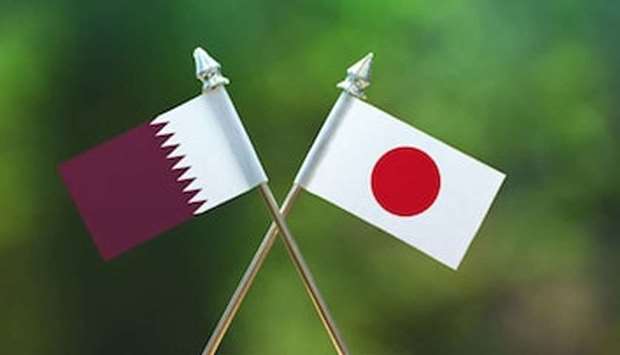The more than four-decade old relations between Japan and Qatar have witnessed the transformation and maturing of economic and trade ties between the two countries, which now share an intricate and symbiotic bond.
Far from being Qatar's first customer of liquefied natural gas (LNG), Japan now has entrenched itself more into Qatar's economic framework through long-term commitments not only in the hydrocarbons sector but also in the fast growing utilities and other sectors, indicating the Land of Rising Sun's involvement in projects and plans targeted towards Qatar National Vision 2030.
Reflecting the growing interdependency, the bilateral trade between the two countries has been expanding by leaps and bounds, reflecting in a $16bn bilateral trade volume in 2018. Major exports from Qatar are crude, LNG and liquefied petroleum gas; while imports include vehicles, industrial materials and electric cables.
More than 35 fully owned Japanese companies are currently operating in Qatar, in addition to 23 joint Qatari-Japanese firms working in the fields of electrical equipment and appliances, petroleum services, water desalination and information technology.
The Japanese companies participate in several LNG export terminals in Qatar such as Marubeni and Mitsui. Chupo signed an agreement for the purchase of liquefied natural gas in 1992 for 25 years and another agreement between Qatar gas and Chiyoda through the participation of Japanese companies as part of Qatar's plans to expand its production of liquefied gas.
In 1996, Japan entered into an agreement with Qatar to import 6mn tonnes of LNG for the next 25 years. Qatar's first LNG shipment to Japan arrived at the beginning of 1997, marking the first LNG export in Qatar's history.
"There is a strong partnership between Qatar Petroleum (QP) and private sector companies in Japan and they have joint foreign investments in a number of countries such as Jordan, Oman, Indonesia and the US," Japanese envoy Seiichi Otsuka said.
Major Japanese bigwigs in Qatar include Chiyoda (for RasGas expansion and Pearl Gas to Liquid project); Takenaka (Hamad International Airport); Mitsui (Ras Laffan C Independent Water and Power Producer); Marubeni (Mesaieed A Independent Power Producer); Mitsubishi Heavy Industries, Mitsubishi Corporation, Hitachi, Kinkisharyo and Fujita (Dome Metro); and Obayashi Corporation (Msheireb project).
Qatar’s Nebras and JERA had entered into a pact on the sidelines of the 12th meeting of Qatar-Japan Joint Economic Committee, which was established in 2006 as part of strategy to work on energy, business environment and investment.
Moreover, Japan Bank for International Cooperation (JBIC) has been playing a vital role in financing the energy related projects in the region. It has already signed a business-partnership agreement with QP. Under the agreement, the JBIC will contribute by financing and extending loans for Qatar’s energy related projects which will provide opportunities and broaden the scope for Japanese companies to cooperate more actively in big projects for the further development of Qatar.
The Qatar Financial Centre Regulatory Authority had entered into agreement with Financial Services Agency of Japan, thus paving way for many financial entities to foray QFC.


